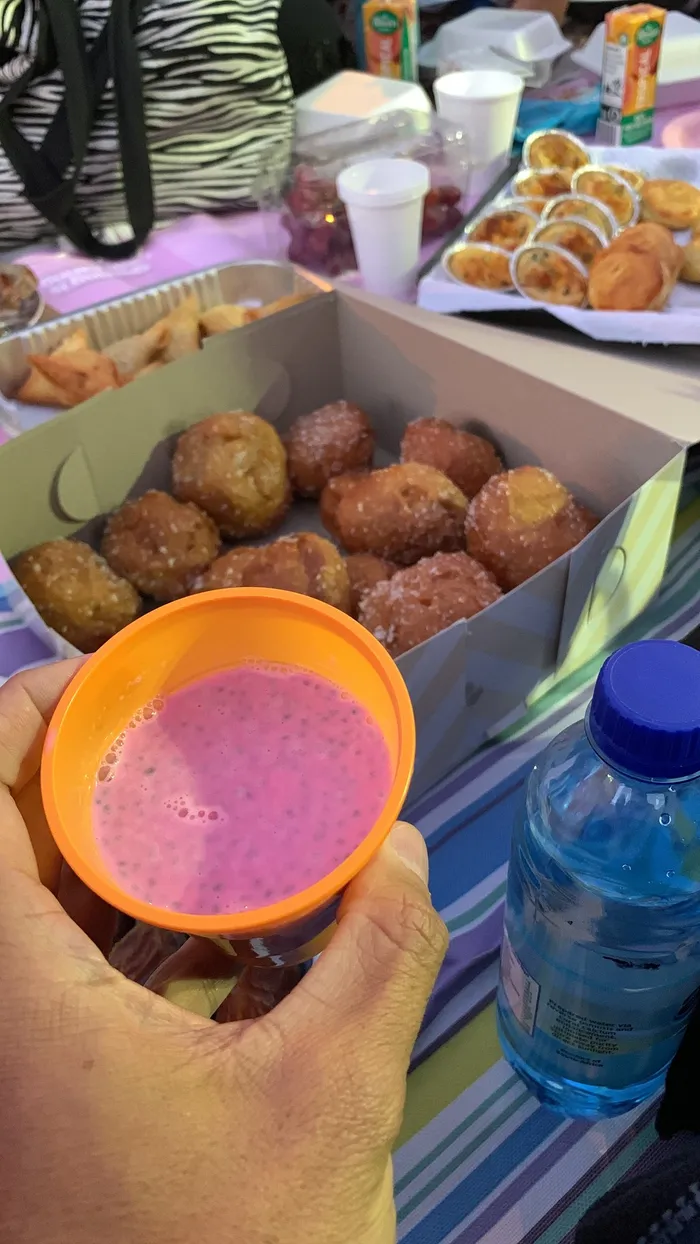Boeka in Bo-Kaap

Home-made falooda and koesisters.

Over 1000 people gathered in Bo-Kaap's Wale and Rose streets for Iftar - the breaking of the fast, also known as boeka time - at sunset last week.
Shafwaan Laubscher, a member of the Bo-Kaap Collective, organized the mass fast-breaking meal, termed Boeka Innie Bo-Kaap, and he says they are planning to host another during this Ramadaan, the muslim month of fasting.
“We started this as a protest against gentrification back in 2018 and last year we started again but look at this turnout Alhamdulillah it is better than we expected,” said Mr Laubscher.

The last boeka coincides with Al-Quds Day and is held in solidarity with the people of Palestine; however, because Eid-Ul-Fitr may occur on a Friday, the organizing committee will consider other options.
“We usually have a boeka on the 15th night (halfway mark) but that falls over the Easter period so we thought we should bring it forward. But we will keep the public and residents informed about the next boeka as we have to think about the date it falls on as well as the logistics involved with arranging it,” he said.
Faizel Sayed, an honours graduate of the International Peace College of South Africa, believes that mass boeka events are essential for fostering community growth.

“I have looked into the matter of hosting mass Iftar and there is nothing that says it’s not permissible. This is an act of charity, bringing people together and bringing Islam to other communities so there can only be goodness that comes from this. Look at how many non-Muslims are here getting a different perspective of the deen of Islam. I will urge the community to continue doing this as it is done in Arabic countries,” said Mr Sayed.
According to advocate Shameemah Salie, Ramadaan is a reminder of moral awareness toward one another as well as Taqwa (God consciousness) of communities.

“What is going to keep us on the right path and what is going to remind us of doing right? Communities are divided in all religions, how many people have lost their faith because there is a lack of unity in their community? Right now as you can see this unity is not just for muslims and it’s important that people from all religions and cultures come together to share a meal,” said Ms Salie.
According to Imam Shamiel Bassadien, the difference between fasting and dieting is the intention to honour Allah (God).
“Physically you feel the pains of hunger and this should increase your consciousness of what you have and to be appreciative of what you have, it should also increase your generosity,” said Imam Bassadien.
“It’s not only a fast of the stomach but it’s also to abstain from speaking evil, listening to evil and to see no evil as you are concious of your Creator during this month, and you are conscious of what you say or do,” he said.
He goes on to say that fasting trains a person to consume less and be more mentally alert.

“You know when you eat too much you get tired and you want to sleep, so when you fast that does not happen and your mind should be more alert, you should become more conscious as well during this time,” he said.
Muslims, according to the Imam, should devote more time this month to learning more about the Creator by studying the Holy Quran and performing salaah (prayer).
“This month of fasting is actually a training ground for the next 11 months.
“When Ramadaan starts you may be at a certain level of spirituality and when it comes to an end you are potentially at a higher level of consciousness and closer to Allah spiritually. So the idea is to stay at that level for the rest of the year or improve oneself but effectively we have trained ourselves during Ramadaan to not give in to our desires and whims, you know the shaytaan (evil one) is trying to detract us but during Ramadaan we have to deny the distractions and praise Allah, and so we increase that consciousness of Allah,” he said.
